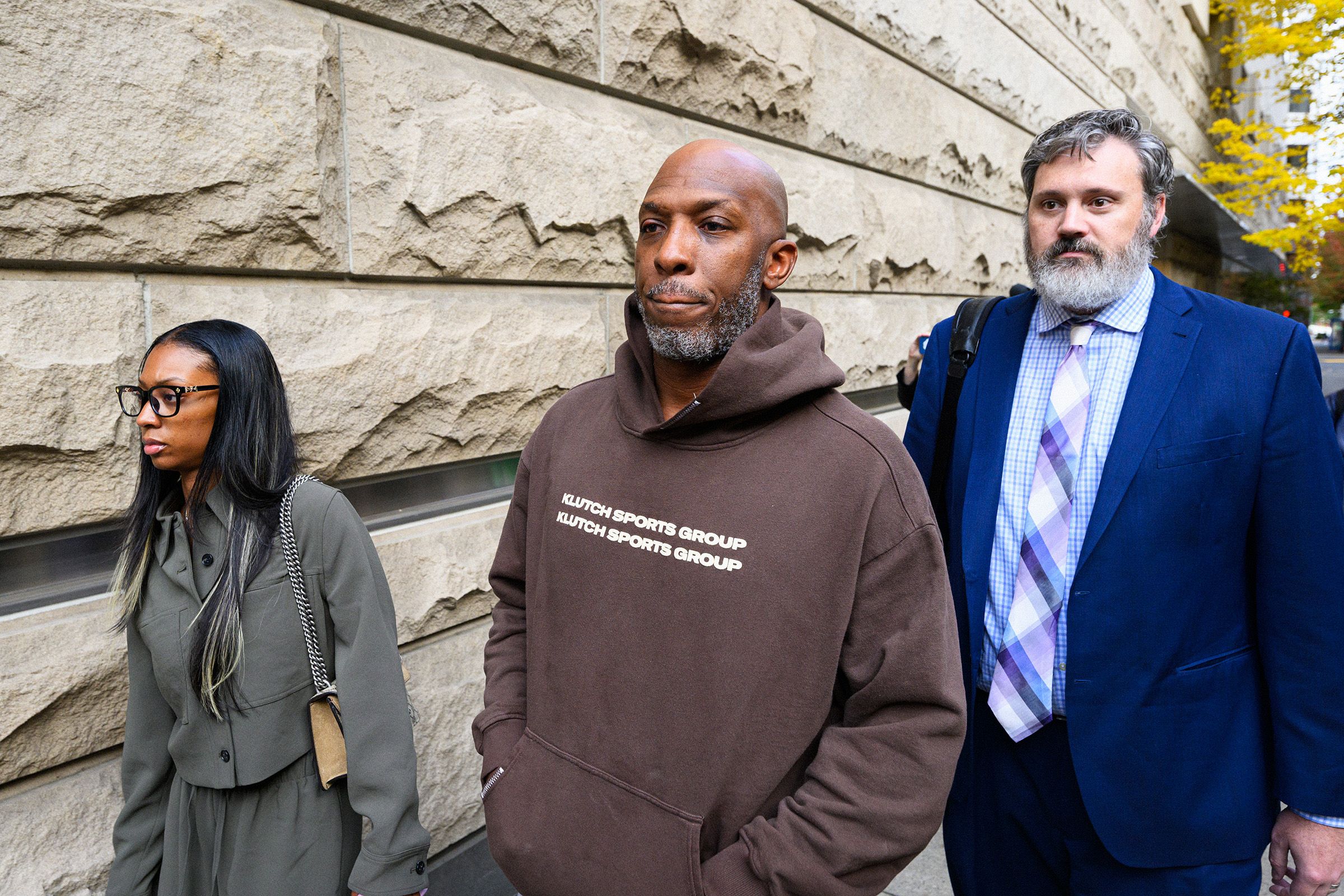To the uninitiated, the arrests of Chauncey Billups and Damon Jones last week for allegations of involvement in rigged illegal poker games may have appeared like an unusual collision of worlds. How could prosecutors claim that former NBA players (one a current coach), professional gamblers, and even mafia members all ended up rubbing elbows as part of the same high-tech cheating scheme that allegedly began in 2019 and ran for several years?
But while some of the elements that appear to have led to a yearslong FBI investigation and sweeping arrests are certainly unique, underground poker games like these are somewhat commonplace. They’re often fueled by celebrities—the role prosecutors say Billups and Jones played here. They’re often backed or otherwise aided by organized crime. And they still regularly feature seedy characters running schemes, chief among which is cheating.
I dug inside the underbelly of private high-stakes poker games to find out how they work, why they’re often targets for the mob or other sordid characters, and why the Billups Games appear to be an especially unique kind of scam.
Let’s Play
Like with many elements of their lives, privacy is often paramount for celebrities who want to gamble. That’s how these private games typically get started.
“The general ecosystem is such that there are athletes, celebrities, wealthy businessmen, and the sort that are high-profile individuals that want to gamble but don’t necessarily want to do it under the constructs of a casino setting,” says Matt Berkey, a well-known poker professional who has played in private games like these for years. “It’s a social setting. Usually there’s party favors, girls, all the things you can’t have at the casino.”
Even in “straight” games that involve no cheating, celebrities like Billups and Jones (also often referred to as “whales”) are typically the straws that stir the drink. They’re generally wealthy and relative poker amateurs. Others in the game are often there explicitly to play alongside them. Conditions of the game are catered to their whims.
When professional poker players are invited to fill seats in the game, the celebrities often dictate this process too. Pros are often invited specifically because a whale has seen them on TV or because they’re known to be fun and willing to give plenty of action despite their skill advantage.
To the outside eye, that appears to have been how the Billups Game allegedly took shape.
“I heard about it back then, when it first happened. I think a lot of people in the community heard about it, because it just popped up out of nowhere,” says Ryan Feldman, owner and producer of Hustler Casino Live, a popular livestreamed poker broadcast. Feldman has played high-stakes poker for years, including in private home games like these (though never specifically in the Billups Games, he says).
“As an NBA fan, I thought it was cool,” Feldman says. “I was also intrigued, because I know Chauncey, I used to work with him at ESPN. I thought it was cool that he was suddenly into poker. I had a friend or two that I knew of that played in the game.”
Only certain kinds of poker pros end up in games like these. Some steer clear altogether, preferring the more regulated casino atmosphere that includes extensive surveillance, security, and the backstop of government oversight. Two well-known poker tournament professionals who asked to remain anonymous told me that in their position, receiving invites to these kinds of games is more of a red flag than anything. “If I ever get invited to a game like that, I assume it’s because they intend to cheat or rob me,” one says.
Others are willing to attend if they’re confident in the game’s trustworthiness. The high-stakes poker community is relatively small, and word-of-mouth information from trusted sources can help cautious players avoid the seedier games.
In the case of the Billups Games, at least some segments of that high-stakes community were suspicious almost immediately. Berkey, for instance, tells me he declined an invite specifically due to cheating concerns. (In the federal indictment, Billups was charged with several counts of wire fraud conspiracy and money-laundering conspiracy.)
Playing Host
My sources tell me that their decisions about whether to attend these games revolve around their trust—or lack of it—in the host, or the “game runner.” Pros who attend need to know the host is running a straight game; a track record with established players is naturally important.
These hosts are often people with “a network of some capacity,” as Berkey puts it, both among the wealthy and the gambling communities. “If you look at Molly, who ran Molly’s Game, she was just very well-to-do and connected in the LA scene,” Berkey says of Molly Bloom, the titular character of both a book and movie involving her life as a host in the high-stakes poker world. “She then was able to expand that out into New York City until ultimately she got taken down.”
The host’s role in these games can be quite fraught.
“When you’re talking about home games, the phrase ‘absolute power corrupts absolutely’ kind of applies here,” Berkey asserts. “Because you’re fully at the hands of whoever is hosting the game … They’re in control of the dealers, they’re in control of the decks, they’re in control of the tables, the shuffle machines.”
They’re also in charge of the books, and that’s where the drama often begins.
These aren’t casinos with cages, cameras, and fully monitored methods of depositing and withdrawing money. Credit is regularly utilized, both to appease players and to avoid issues with traceable movements of large cash sums.
“People don’t always pay,” Berkey says. “And when that becomes an issue, now it’s the host’s job to make good on the books in some capacity, otherwise they’re going to lose all their clientele.”
Enter the mafia, who, in addition to running some of the poker games, often fill a role they’re well known for in popular culture: settling debts.
“Say you have someone who loses a lot of money,” says Zach Jensen, a content developer and mafia expert at Las Vegas’ Mob Museum. “Getting them to pay up, the mob can step in and do that. Extortion, intimidation, and violence too.”
As Jensen explains it, the mob may not be anywhere near the size or power of its one-time might. It operates in a more under-the-radar manner today. But it’s still very active in many of its old tricks, and illegal gambling remains a big part of the picture.
In fact, at least one name that appears in the Billups indictment has roots in the mafia’s glory days.
“There’s an Angelo Ruggiero Jr. listed in there,” Jensen says. “His father, Angelo Ruggiero, also known as ‘Quack Quack,’ was a close friend of John Gotti and part of his crew.”
Those who fall into pits of recurring debt are common targets for further exploitation.
“They’re going to want to collect that debt, and they might work with you,” Jensen says. What they might do, he alleges, “especially if you’re a player in the NBA, they might say, ‘You owe me a lot of money, but I can knock some of that off if you do something for me during your next game.’”
Face Cards
Whether these or other types of motivations led to Billups’ and Jones’ alleged involvement in rigging these poker games is impossible to glean based on the information we have today. But the indictment clearly alleges both were active participants in the scam.
Both allegedly served as “face cards” to draw other players to the game, not an unusual role for celebs even in more legitimate settings. Here, though, both former athletes allegedly knew they were front men helping lend faux legitimacy to a fixed game—a level of perceived legitimacy that may have caused other players to let their guard down.
None of the cheating methods alleged in the indictment are new, necessarily. Each, though, underscores the general depth and complexity of the scheme.
One alleged method involves use of “electronic poker chip trays” or cell phones that could read cards placed on the table, which were initially identified by some outlets and social media posts as “x-ray technology.” Those in poker circles, though, believe something was lost in translation here; this likely refers to the use of RFID card reader technology that’s also used to livestream poker on TV or YouTube.
Use of card decks marked on their reverse sides with invisible ink only seen by special glasses or contact lenses is another alleged strategy, allowing the wearer perfect knowledge of everyone’s cards at the table. This is another that’s been well-known in poker circles for some time; these products aren’t hard to find online. They also aren’t especially sophisticated.
“Those decks are really cheap,” Berkey says. “It means they were using, like, a gas station deck, basically. Anybody who’s not an idiot should have figured out that deck wasn’t any good.”
Again, though, many players apparently didn’t spot the tell—perhaps because playing with a legend like Billups distracted them.
Another alleged method is the use of a rigged card shuffling machine. The Deckmate 2, the most popular shuffling machine used in casinos and in private card games today, can be altered to give potential cheaters knowledge of the cards in each player’s hand. WIRED and researchers from IOActive recently teamed up to show how a compromised Deckmate 2 machine can be used to cheat at poker as a proof of concept.
“If I’m ever at a private game where I think something might be possibly shady, and they’re using a Deckmate 2, I would not want to play,” Feldman says. “I’ve always advised friends, if you’re at a private game and you think it might be shady, and you see a Deckmate 2, just run. There’s no reason for it in a private game. It’s just too risky.”
Berkey says virtually all of these alleged cheating methods almost certainly require host involvement—and the help of others.
One role alleged here was the “Operator,” an individual located off-site who obtained hand-by-hand card information via whichever form of cheating technology was being used in the game. According to the indictment, the Operator purportedly communicated that info to the “Quarterback” or “Driver” in the game, who then used predetermined signals to share it with other members of the team and direct their actions at the table.
Scams like these aren’t going anywhere as long as illegal gambling exists, with its various opportunities to exploit greed and dishonesty. But those in the poker world actually see a silver lining to cases like these being publicly exposed.
“Normally when there’s cheating in poker, it’s really hard to catch the people or do anything about it,” Feldman says. He says this is the first time he’s heard of people “getting in trouble” for allegedly manipulating a poker game. “It at least puts that warning out there to other people that try and cheat at poker, like hey, if you do this there’s a chance that you could go to jail.”




